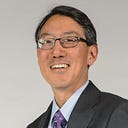What You Can Do for Justice
When Steve and I talk about our recent book, The Fear of Too Much Justice, we often get some version of the question: What can I do? What can ordinary people do? The scale and the perversity of the injustices we document cry out for action, and it’s clear that our political system and our highest courts have failed to deliver on the promise of equal justice.
When I get this question, I usually say something like this.
The inequality and inhumanity of our criminal legal system are both overwhelming and enraging: thousands of people sitting in jail solely because they are poor, prison conditions that would be horrific by medieval standards, blatant racism in jury selection motivated by the desire to convict Black people, executions that the state of Alabama is now proposing to carry out using nitrogen gas, and on and on. Many people who care deeply about these injustices would like to be my co-author, Steve Bright. Steve is one of the great American heroes of the past half-century, a man who has won multiple Supreme Court cases, saved the lives of many of his clients, and transformed the way of poor people and people of color are defended in criminal courts.
But we can’t all be Steve Bright. Not everyone can go to law school. Not everyone can make the personal and professional choices that he and many other death penalty and civil rights lawyers have made. But we can all do something.
I am a board member of the Southern Center for Human Rights. A few years ago, at our annual Frederick Douglass Awards Dinner, we honored Renny Cushing. Renny became an outspoken opponent of the death penalty — after his father was murdered. As a state legislator, he led the campaign to abolish the death penalty in New Hampshire, which finally succeeded in 2019.
At that dinner, Renny did something like the following. First he asked everyone who had represented a person facing the death sentence to stand up. Then he asked everyone who had worked for an organization involved in death penalty defense to stand. Then everyone who had engaged in advocacy to end the death penalty. Then everyone who had voted to end the death penalty. And finally everyone who had given money to an organization that opposed the death penalty. Of course, by that point everyone was standing. The point was that everyone could help, and everyone had helped.
Renny Cushing died last year. I was reminded of him last night, at this years Frederick Douglass Awards Dinner. We honored Earlonne Woods and Nigel Poor, creators of the amazing podcast Ear Hustle. We also honored Ruth Friedman, a legend in death penalty defense circles — a veteran of the Southern Center for Human Rights who moved with Bryan Stevenson to Alabama to start the Equal Justice Initiative and later founded the 2255 Project, the primary organization assisting people sentenced to death in the federal system. Ruth also talked about the many ways people can help end the death penalty: not only representing people on death row, but talking to other people, voting and helping other people vote, and giving money. “Can you give a little bit more this year?” she asked.
So back to me. I’m not a practicing lawyer. But I made some money in my business career, I’m reasonably good at organizational and financial management, and I know how to write. That’s what I can do. I give money to organizations that fight for justice in the criminal legal system, primarily the Southern Center for Human Rights. I serve on the board of the Southern Center. And I helped Steve Bright write The Fear of Too Much Justice. There are many people who do more than I do, but I do something, and I do what I can.
We face enormous problems like injustice in the criminal courts, climate change, or the eradication of intelligent life by social media. We need people to dedicate their lives to solving these problems. But we need more than just heroes. We need ordinary people who care to do what they can, be it a little or a lot. So if you read The Fear of Too Much Justice, and if you care, just ask yourself what you can do.
